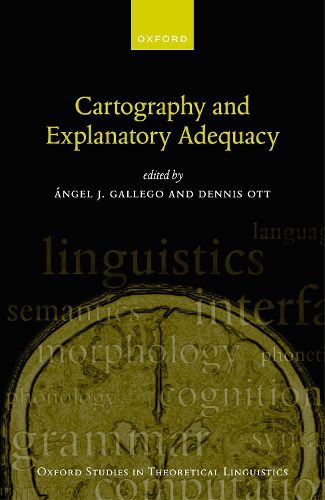Readings Newsletter
Become a Readings Member to make your shopping experience even easier.
Sign in or sign up for free!
You’re not far away from qualifying for FREE standard shipping within Australia
You’ve qualified for FREE standard shipping within Australia
The cart is loading…






This book contributes to the ongoing empirical, conceptual, and meta-theoretical debates regarding the merits and drawbacks of the cartographic program in linguistic theory. Although cartography has its roots in the study of the left periphery, its empirical scope has expanded significantly over the years and now covers a wide range of domains such as argument structure, modification, and constituent order. The chapters in this volume offer a critical examination of the cartographic assumption that there is a rich array of functional projections whose hierarchical order is fixed and determined by Universal Grammar. They discuss the nature of these cartographic hierarchies and their relation to the central theoretical goal of explanatory adequacy: are functional hierarchies an irreducible property of Universal Grammar (hence constituting part of the "residue" beyond the scope of principled explanation), or are they emergent, deriving from independent principles that do not require a further enrichment of Universal Grammar?
$9.00 standard shipping within Australia
FREE standard shipping within Australia for orders over $100.00
Express & International shipping calculated at checkout
This book contributes to the ongoing empirical, conceptual, and meta-theoretical debates regarding the merits and drawbacks of the cartographic program in linguistic theory. Although cartography has its roots in the study of the left periphery, its empirical scope has expanded significantly over the years and now covers a wide range of domains such as argument structure, modification, and constituent order. The chapters in this volume offer a critical examination of the cartographic assumption that there is a rich array of functional projections whose hierarchical order is fixed and determined by Universal Grammar. They discuss the nature of these cartographic hierarchies and their relation to the central theoretical goal of explanatory adequacy: are functional hierarchies an irreducible property of Universal Grammar (hence constituting part of the "residue" beyond the scope of principled explanation), or are they emergent, deriving from independent principles that do not require a further enrichment of Universal Grammar?